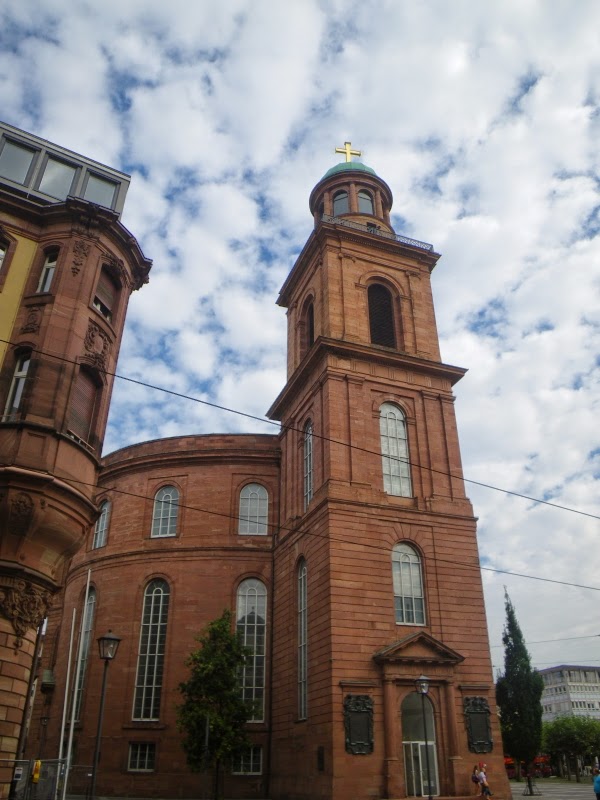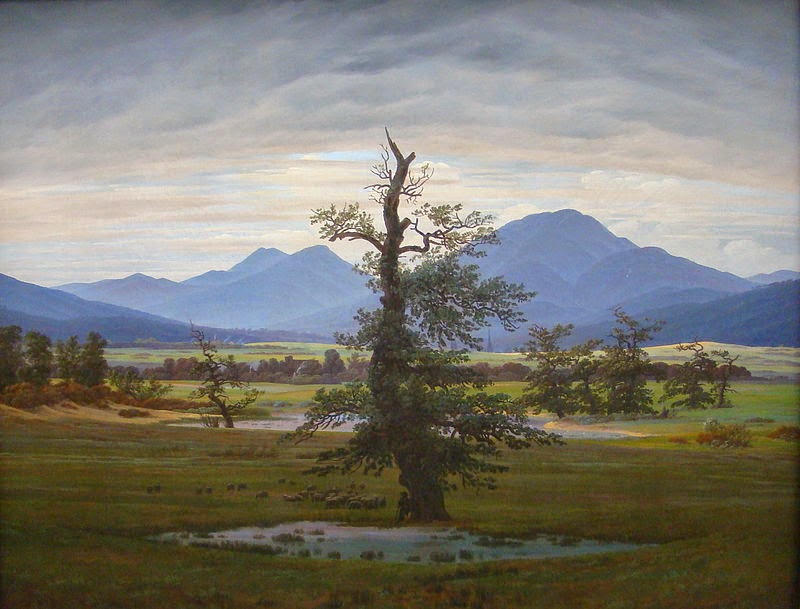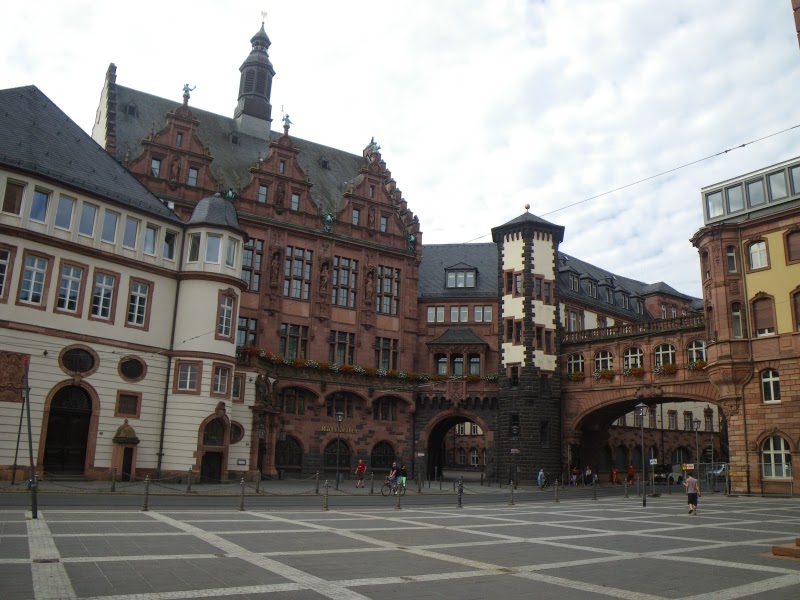
Though mostly doing the responsible thing and honouring his father’s wishes for him to study law, Johann von Goethe really of course wanted to pursue Oriental studies (Islam and the Arabic language being two subjects that fascinated him throughout his life) but grudgingly left his patrician home in the Free Imperial City of Frankfurt am Main to go to the University of Leipzig. There, Goethe fell in with some influential Bohemian types and while his grades suffered, he was did find inspiration in one students’ pub for his re-telling of Faust that would take torturing decades more to realise. These first few semesters were quite productive for Goethe, having gotten into the practise of churning out experimental short plays and poetry on a regular basis. Either because Goethe himself was too harsh a critic, however, or because they really were sophomoric works, few survived from that early period. Waxing dissolute and not doing so well in school, Goethe returned home to Frankfurt and eventually remarshaled his resolve to again take up his studies, but this time in Strasbourg.

Although the land of Alsace had been in possession of the French Empire, annexed from the Holy Roman Empire, for more than a century in this most recent in a long chain of redrawing borders, there still was a large German student population at the illustrious university and the city’s architecture and high spires of its cathedral—though somewhat mistakenly—struck Goethe as quintessentially German but not in the nationalistic sense (there was no Germany, just a loose confederation of city-states, petty kingdoms and imperial monasteries with varying degrees of allegiance to the Emperor) but rather as a community united in language, in the artistic sense as well as the spoken word. Goethe became particularly keen on this notion, drawing from his own childhood experiences being educated with a very liberal curriculum that included the classics and world literature, and finding more and more frustration and dissatisfaction with his own writing projects—as meaning and passion seemed to retreat from his poems (overtures to one young mistress especially) the more he applied himself.

In Strasbourg, Goethe saw his horizons broaden and the literary world unfurled before him when he was introduced to the plays and sonnets of one bard called William Shakespeare, and found in Shakespeare’s free-wheeling and bold manner the conventions that he sought for own prose. Back at the family home, the prodigal son celebrated his first love fest to the Bard and his muse with a “Shakespeare Day” on 14 October with some of his classmates. Goethe’s family saw no harm in their son’s renewed interest in writing, as his marks had improved and would be allowed to open a small practise in first in Frankfurt then in Wetzlar. His career as a lawyer, however, was destined to be a short one—Goethe often courting contempt by demanding clemency for clients and more enlightened, progressive laws. Perhaps sensing that this was the wrong vocation or perhaps because of his moonlighting, Goethe worked extensively on his first novel,
The Sorrows of Young Werther (Die Leiden des jungen Werthers)—a semi-autobiographical account of a failed love affair told in correspondence and climaxing in the anti-hero’s suicide. The novel was an instant sensation and helped to propel, just as Shakespeare had done for English, German into the pantheon of literary and scholarly languages. Though not the stylings of emo or goth, young men were dressing as Werther (
Werther-Fieber it was called) and tragically, there were some urged to the same ending after reading the book—and not just in Germany but all over. Fearing the dangerous influence that this potentially subversive work might have if the international celebrity might be allowed to spread unabated, a writer and publisher called Christoph Friedrich Nikolai from Frankfurt an der Oder, in central Prussia, went so far as to give the story a Hollywood ending, under the title “The Joys of Young Werther.”
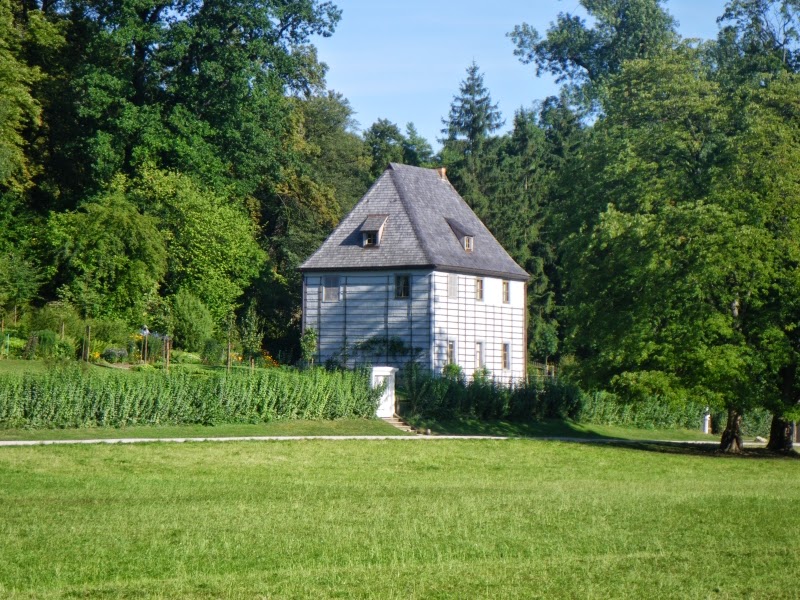
Napoleon was a committed fan as were many others. The political discontinuity that charaterised the Holy Roman Empire was a grave subject of consternation to outsiders, who lived under more centralised governments, but as the city-states of an equally fractious Italy during the Renaissance encouraged the arts through patronage—every little lord wanting to retain pet talent, the same sort of arrangement could be fostered in Germany, and Goethe’s book caught the attention of one young heir-apparent to the small but grand duchy of Saxe-Weimar-Eisenach. This enlightened ruler ennobled Goethe—putting the
von in his name—and kept him on in Weimar for the rest of his life.
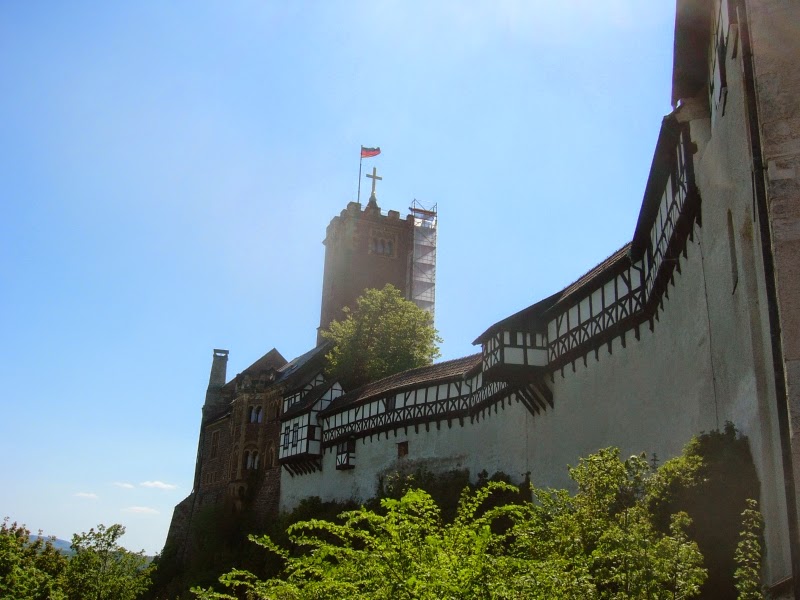
The young duke was of the same line who had two-hundred fifty years earlier had the courage and the wherewithal to provide sanctuary in the Wartburg by Eisenach to another controversial figure, Martin Luther—whereas in a more unified society with no place to seek refuge, like France or England, the Reformer would have been burnt at the stake for heresy. Goethe held a number of royal offices through his career, which afforded him travel on diplomatic missions throughout Europe and experiences Goethe could not have otherwise obtained, meeting many other contemporary luminaries—while not infringing on his writing and scientific studies. Goethe was deeply interested in all facets of existence and was absolutely prodigious in many fields, having amassed the largest mineral collections in Europe, published several seminal treatises on botany, optics and anatomy (which included some inspiring observations that Charles Darwin took to heart), and meteorology (researching the forecasting nature of barometric pressure) among others.
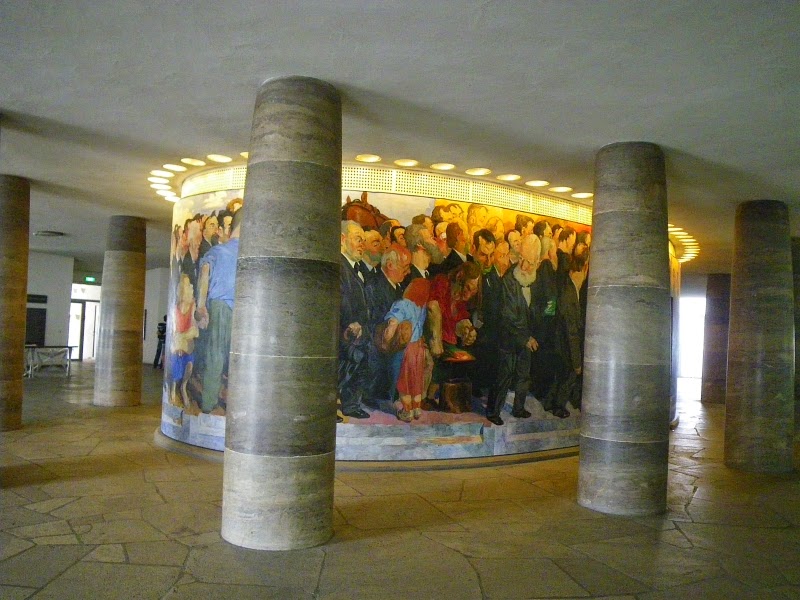 Democratic reforms elsewhere in Europe—including France, culminated in 1848 in Frankfurt am Main with a Constitutional Convention, which rejected the decimated gerrymandering of the former Empire, from some three-hundred fifty quasi-independent states to a confederation of a mere thirty-seven, as not being representative of the people. This revolution, though uniting and healing and never quite killed, did rather die on the vine, with Prussia and other regional powers tossing out democratic ideals, feeling that they had served their purpose and were in the environment of security and renewed prosperity were dangerous and subversive.
Democratic reforms elsewhere in Europe—including France, culminated in 1848 in Frankfurt am Main with a Constitutional Convention, which rejected the decimated gerrymandering of the former Empire, from some three-hundred fifty quasi-independent states to a confederation of a mere thirty-seven, as not being representative of the people. This revolution, though uniting and healing and never quite killed, did rather die on the vine, with Prussia and other regional powers tossing out democratic ideals, feeling that they had served their purpose and were in the environment of security and renewed prosperity were dangerous and subversive. 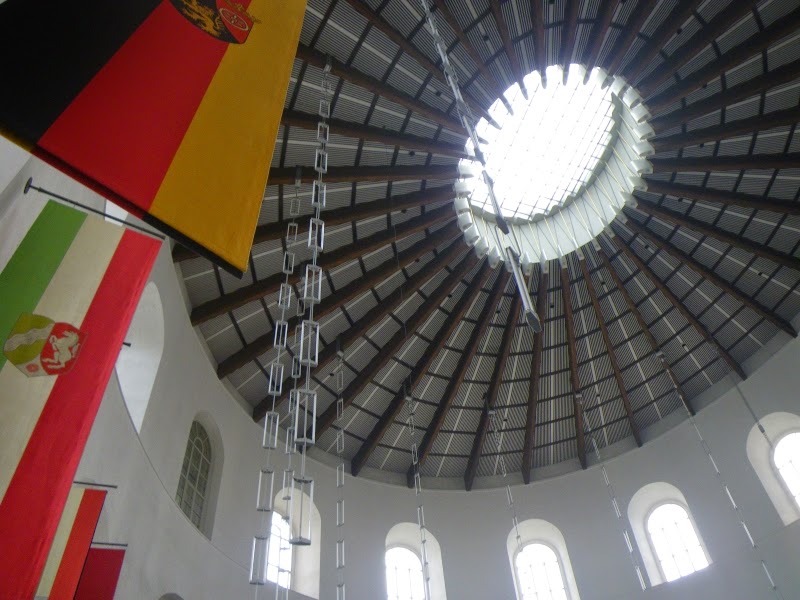 the German tri-colour of gold, black and red (supposedly inspired by the uniforms that a group of resistance fighters worn during the Napoleonic Wars) and without the insignia of any particular royal-holding but rather of the people was briefly flown, and the German national anthem was sung. “Deutschland, Deutschland über Alles,” was not a lyric of dominance but rather a plea for an end to Kleinstaaterei and internal division, though now replaced with the excusable and admirable trinity of Einigheit und Recht und Freiheit (Unity, Rule of Law and Freedom) originally extolled in the third verse. These events were not an abortive revolution but rather sentiments that came before their times. One other premature development came about this same year, with social scientists and agitators Karl Marx and Friedrich Engels first publishing a thin pamphlet in Köln called the Manifesto of the Communist Party (Manifest der kommunistischen Partei) which described all of history as class-struggles, but this too garnered little attention at the time.
the German tri-colour of gold, black and red (supposedly inspired by the uniforms that a group of resistance fighters worn during the Napoleonic Wars) and without the insignia of any particular royal-holding but rather of the people was briefly flown, and the German national anthem was sung. “Deutschland, Deutschland über Alles,” was not a lyric of dominance but rather a plea for an end to Kleinstaaterei and internal division, though now replaced with the excusable and admirable trinity of Einigheit und Recht und Freiheit (Unity, Rule of Law and Freedom) originally extolled in the third verse. These events were not an abortive revolution but rather sentiments that came before their times. One other premature development came about this same year, with social scientists and agitators Karl Marx and Friedrich Engels first publishing a thin pamphlet in Köln called the Manifesto of the Communist Party (Manifest der kommunistischen Partei) which described all of history as class-struggles, but this too garnered little attention at the time.

